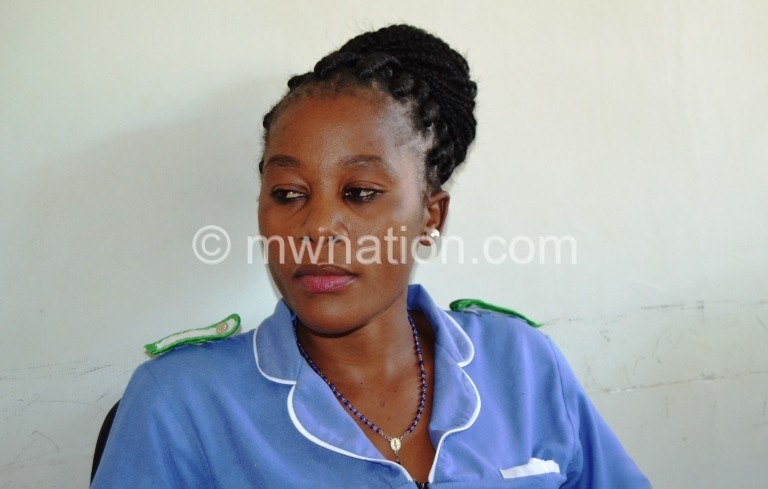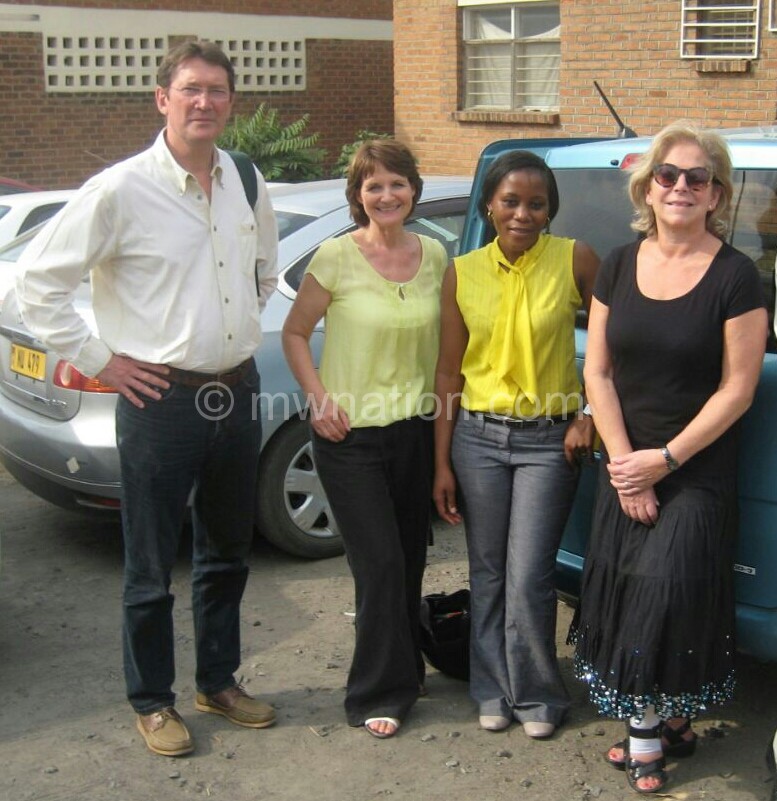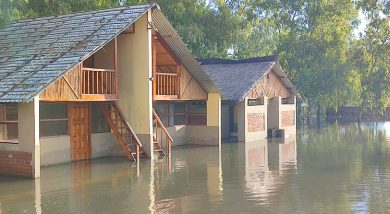Lucia Mbulaje: The hypertension advocate
‘‘I saw an old man sitting afar, next to his wife’s bed. He asked me to do something. He said; ‘I am ready to give all my body parts only if you can save my wife.’ I went closer, his wife was unconscious and I realised she had stroke, which is a result of hypertension.
“I asked the man if he knew anything about hypertension, he had no idea. I had a chat with him and took tests on him, he was hypertensive as well’’.

He in the end said that he would have been happy if both he and his wife had, had their blood pressure checked.
“This touched me and made me ask myself the question; what can I do for the communities out there?” says Lucia Mbulaje.
This encounter, coupled with the experience of seeing her mother struggle with hypertension motivated the 29-year-old nurse to reach out to many.
She realised that the communities needed help, hence, the start of her work.

Without any funding or support from anyone, Lucia, a senior nursing officer working at the Queen Elizabeth Central Hospital (QECH) reaches neglected groups to save their lives.
She doesn’t want anyone to die because of ignorance associated with hypertension.
“Hypertension is a condition in which there’s persistent rise in blood pressure and it kills. It is the leading cause of death in the world seconded by other infectious diseases,” she says.
For Lucia, a giving hand goes a long way. She says her motivation is seeing people living healthy. So far, that is her greatest contribution to humanity.
Barely a year after her employment at Queens in 2011, she began her outreach work in community health centres after seeing a gap in hypertensive care.
In 2012, Lucia asked the Blantyre District Health Officer (DHO) for permission to run hypertensive clinics in health centres.
She started with South Lunzu Health Clinic because it was in her area as charity begins at home.
At present, she runs these clinics in 10 community health centres which include Chilomoni, Limbe, Bangwe and Lirangwe.
Lucia bought medical equipment for tests in hypertension and medicines using her own salary. In addition to medication, she carries out awareness, screening as well as providing mentorship on hypertension to staff in health centres.
In awareness she points out that hypertension is a silent condition which sometimes shows symptoms or doesn’t.
“It causes complications such as stroke which is very costly. One spends a lot for rehabilitation to get better. It can even take years to recover from stroke and for some, it doesn’t improve. There is also the risk of kidney damage and heart disease. The pressure at which the heart is pumping blood becomes too much for the heart, it gets tired and its muscles become tough and a person can have congested cardiac,” adds the nurse.
According to a survey she conducted in 2016 with 100 participants- 50 from Bangwe market and 50 from Limbe market-less than 30 percent knew about blood pressure and 70 percent did not know about it.
In urban rural, according to Lucia, 40 percent had knowledge of hypertension, however, after further probing, she realised that most of them do not know what hypertension is.
Lucia adds that the hospital is already overwhelmed with a lot of sick people; hence, it’s hard for them to attend to someone who just comes in for screening.
“If we had adequate staff, some would be going into communities to do the screening. We don’t have enough people to go out there to do preventive services,” she says.
Lucia’s work goes beyond the hours and days of her employment at Queens and she extends the boundaries of the specified to be the nurse that goes deep into the areas to give medication for the thousands she continues to serve.
“I am a civil servant. I don’t earn a lot, but from this, I am able to buy medication to give up to one hundred patients. It takes them for a month and that’s what makes me proud. When I see them going, I feel good,” says Lucia.
Her sister, Irene said Lucia was always a kind and quiet child. Irene believes that having seen their mother’s struggle, she did not want to see anyone else struggle.
Agnes Filimoni is one of the beneficiaries of Lucia’s intervention.
“I am very grateful for the work that this young lady is doing. I remember going to church one Sunday and heard the reading of a letter about a nurse who would open a hypertension clinic in Machinjiri at the South Lunzu Clinic. I went and got tested and she told me my blood pressure was very high. She advised and put me on medication. A large crowd came because she had sent letters to a lot of churches in the area. I also remember that on this particular day, a nurse came from the maternity wing to borrow her equipment, the health Centre had shortage,” says Filimoni.
Filimoni says she is now strong and goes about life with so much ability.
In recognition to her work, Lucia got the Principles Award from KCN in 2015 during their 50 years of existence celebrations.
So far, she has been helped by the British and Irish Hypertension society who were impressed with her work.
They gave her equipment which she distributed to community health centres, including Queens.
Her sister and her friend once helped her with money for medicines. Lucia adds that her family has been her greatest support.
She started her educational journey at Lambalala Primary School and South Lunzu Primary School. Lucia attended South Lunzu Community Day Secondary School.
She was selected to Mzuzu University entrance in 2006 to study Bachelor of Science Education. While at Mzuzu University, she was called for interviews at the Kamuzu College of Nursing, when all she wanted was Mass communication at Chancellor College which she had applied for.
“I was disappointed. I didn’t want to do the interviews, but my mother insisted. She even called my friend at school to encourage me to go. I went, but wasn’t serious. I ended up doing well,” she says.
In 2007, Lucia started nursing and found it very interesting.
“I say that I was called because I didn’t choose.
Lucia graduated in 2011 and began work in Ward 4 A where she was the ward in charge.
She moved to the emergency department and got promoted to Matron April 2018,
In addition to her work, she is doing Masters in public Health at the Malawi College of Medicine and she has specific interest in non-communicable diseases which she feels are sidelined.
The biggest challenge in her line of work is lack of funds. She caters for 80 to 100 people who are covered for a month at a time, but with this initiative, people from other communities flock to the health centres because they know they will be given help and enough information about hypertension.
“The number of patients has grown to 500 in South Lunzu alone and it’s overwhelming. Mobility is also a challenge,” she add
To cope, Lucia says sleep reboots her system and makes sure she sleeps not less than six hours.
My target is to reach the whole of Blantyre and other districts.
Lucia’s advice: Hypertension has to do with life style for 70 percent of Africans. “The amount of salt we add in our food and fats when we are cooking. The other problem is sugar. We put half a cup of sugar and pour some water in it. Lack of exercises, too, is a problem.”





